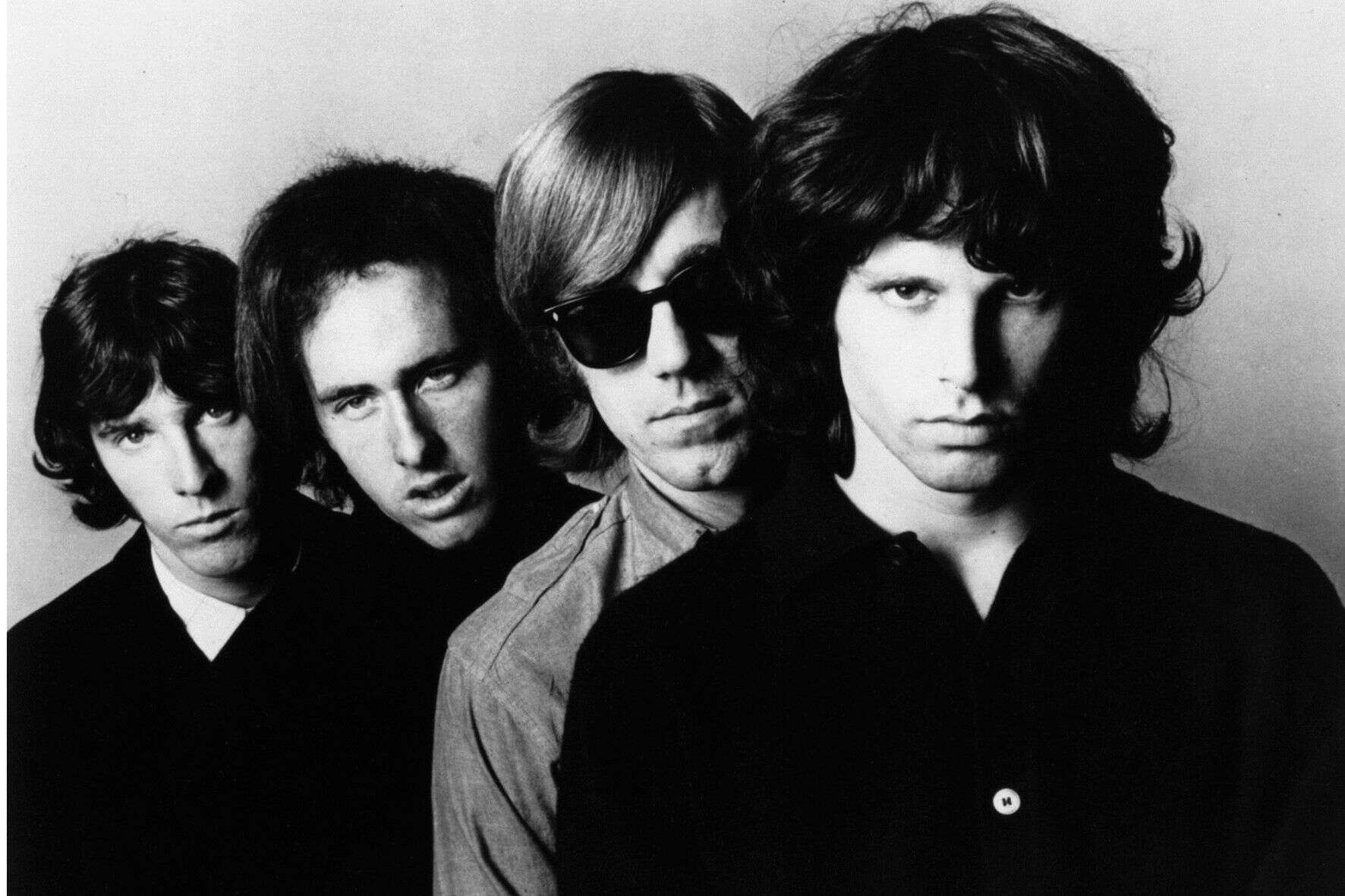The Doors' music was powerful, Jim Morrison's lyrics rock and roll poetry, rebellion, legendary. It's been 60 years counterculture influence.

Sex god, music deity and poet of chaos, Jim Morrisson was the reluctant hero of counterculture. The Doors, his vehicle to change the world.
It’s been sixty years since the band first released Break On Through, its debut that smashed through punch-drunk sunshine songs to turn out the lights on the social construct of the Sixties. And the music kept on doing it through to today because it’s now equally as relevant.
Morrisson rattled authorities in his tight leather pants. His struggle with reality as it was served up, infused with alcohol and narcotics.
His alter ego, The Lizard King, became his poetic persona after penning a poem with the same name. He was an overwhelmingly large personality, shamanic in a way, with an intensity of wordsmithing that led melody in a way that few rock and roll, and definitely zero hip hop, have mustered since.
His words led melody
The band was born out of a chance meeting between Morrison and keyboardist Ray Manzarek at the University of California, Los Angeles, in Venice Beach in 1965.
Manzarek saw in Morrison not just a singer but a poet who could turn lyrics into theatre. Guitarist Robby Krieger and drummer John Densmore soon joined, and together they invented a sound that was moody, bluesy, and just strange enough to feel dangerous.
In five years, they released six albums with Morrison: The Doors, Strange Days, Waiting for the Sun, The Soft Parade, Morrison Hotel, and finally L.A. Woman. Each one was a trip through the wild, dark corners of rock and the human.
Morrisson questioned everything.
He was in a confessional and swung from the chandeliers at the same time while Manzarek’s organ riffs bled out religion from the instrument and injected the blues.
Performances were theatre, Morrisson, extremely shy, often sang with his back to the audience in the band’s early days. Also, often, high as a kite.
The Lizard King was a man who was disintegrating in full public view. His self-destruction remains legendary and his rebellion, his attempts to find the extremes of consciousness and travel to the edges of his mind, must have played a part in the constant internal struggle attributed to his downfall.
ALSO READ: Wonderboom’s Cito segues to goth with BLVD HVNNY
Six years after the band released their debut, L.A. Woman hit the shelves in 1971, and Morrison had become unrecognisable.
Gone was the lithe performer, and his body gave way to a heavier, bearded, and erratic exterior and interior.
Law enforcement became his declared enemy with a raft of arrests for swearing, drinking, and lewd and lascivious behaviour. He was even cuffed for indecent exposure.
Morrisson died at 27, on 3 July of the same year in Paris. This, after he fled to the French capital to disappear and find himself.
He was found dead in his Paris apartment, and the fact that there was no autopsy and just rumours of an overdose has fuelled conspiracy theories since.
Like Elvis, many believe he did not die there, while others follow a more sinister narrative.
Morrison’s death conspiracy
Morrisson’s grave remains, to this day, a shrine to a man who was but never became. It’s a grave that attracts wanderers, fans and journeymen who pay homage to a legend of his time, and ours. His poetry is as relevant today as it has been for six decades.
No One Here Gets Out Alive written by Danny Sugarman and Jerry Hopkins in 1981, was the definitive biography on the King. It’s been the go-to reference for almost every other piece of media created on Morrisson.
The book may be old, but its brilliant storytelling has not dated. The exceptional Oliver Stone 1991 film, The Doors, was based on its pages. Val Kilmer delivered the performance of a lifetime in this piece of psychedelic cinema. It’s available on Apple TV and Google Play for rental.
Hopefully, South Africa will also get to see the newly 4K remastered and Grammy Award-winning documentary When You’re Strange, narrated by Johnny Depp.
The film was first released in 2009 and will be re-released globally next month. It features a new introduction by bandmates John Densmore and Robbie Krieger.
The re-release will also debut an updated version of Riders on the Storm recorded with more than twenty artists from around the world.






